Bob Paris
New Zealand’s first rock and roll guitar hero began as a Hawaiian-style steel guitarist. Bob Paris was just 11 years old when he started learning the steel guitar while growing up in the New Lynn area of West Auckland.
He played an acoustic lap steel, learning from his father, and then from the veteran stringed-instrument teacher Walter Smith in the city. Bob was interested in the steel guitar music that was then in vogue, admiring overseas stars such as Sol Ho'opi'i and locals such as Bill Sevesi and Barry Slot.
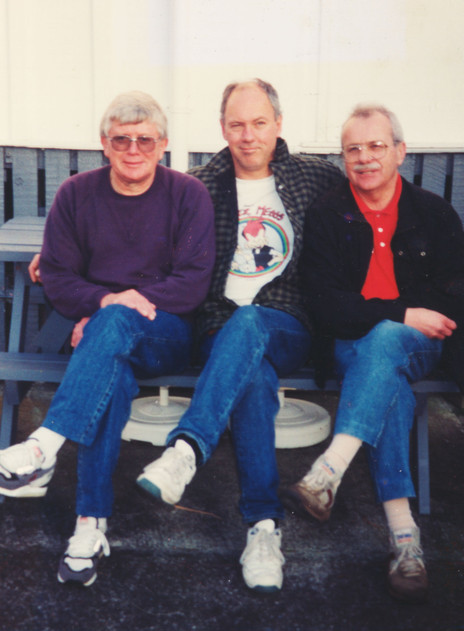
One of the last photos of Bob Paris (far right) taken shortly before his death in 1994, with Bill Fairs and trumpeter Peter Cross.
Photo credit:
Bill Fairs collection
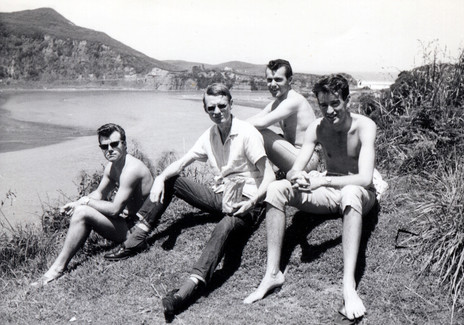
Brylcreem at the beach, East Cape, December 1962: Boyd Robertson, Fred Lawrence (Australian bassist), Bob Paris, Bill Cate.
Photo credit:
Bruce King
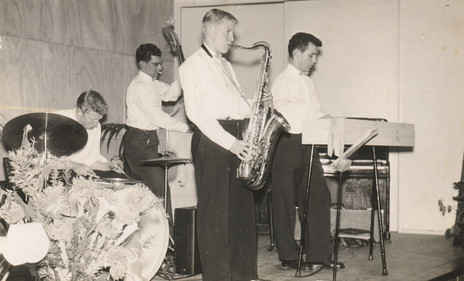
Bob Paris' first band, 1956. From left Keith McMillan, Gene Blazer, Bill Fairs and Bob Paris on slide guitar.
Photo credit:
Bill Fairs collection
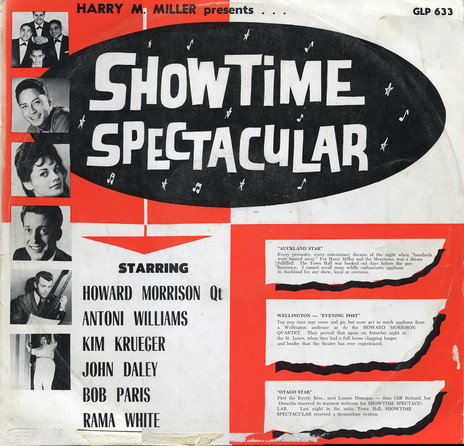
Harry M Miller presents Showtime Spectacular, an album featuring the Howard Morrison Quartet, Antoni Williams, Bob Paris and more, released on his La Gloria label, 1964. The album was not a live recording of the concerts, but a compilation of singles already released.
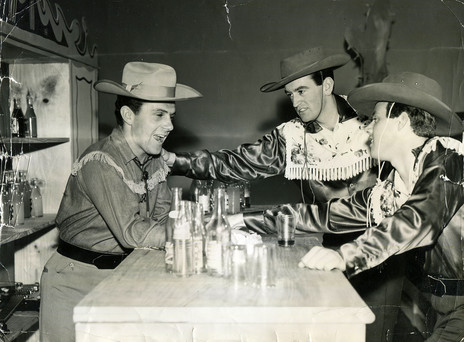
Left to right: Bob Paris, Bill Cate, and Boyd Robertson. Photo taken for 'Son of Western', a 1963 musical show produced in Wellington by WNTV-1. It also starred Lyn Barnett, Bas Tubert, and Laurie Lewis and the Blockbusters.
Photo credit:
Chris Bourke collection
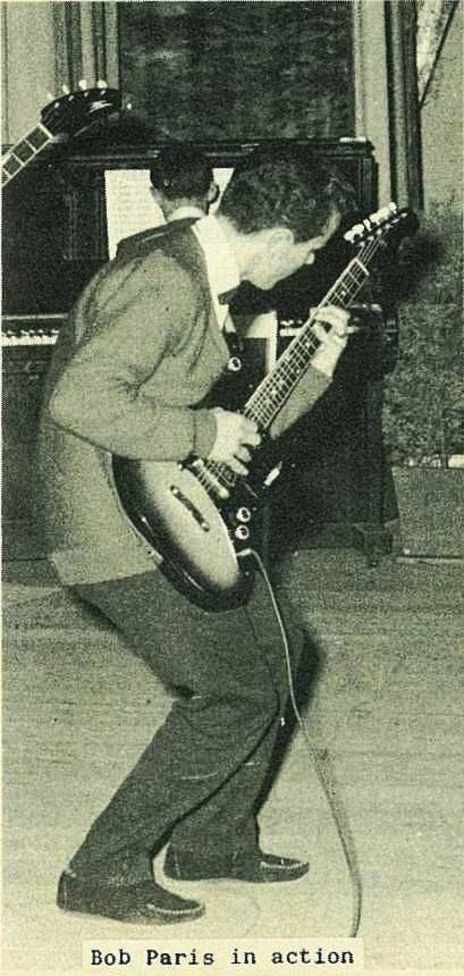
Bob Paris in Gisborne
Photo credit:
Gisborne Photo News
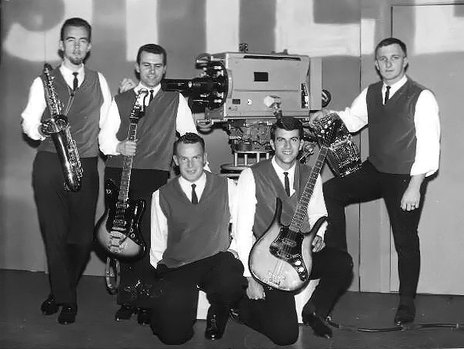
The Bob Paris Band in the late 1950s: Brian Smith, Bob Paris, Mick Dawson, Keith Graham, Tony Hopkins.
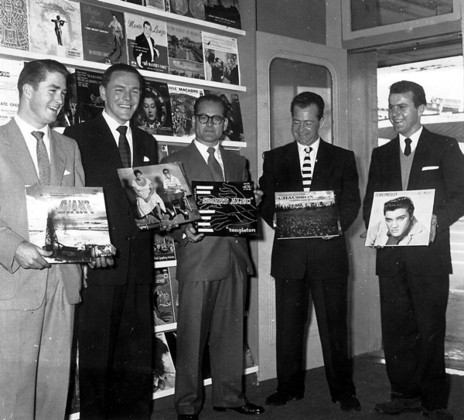
The Auckland record industry out in force at the opening of The Starlite Centre in Pitt Street in November 1957. From left: Phil Warren (Philip Warren Ltd./Prestige); HMV's Alan Siddall; G A Wooller/Pye's Fred Noad; Norman Wright (Norman Wright Ltd); and Phil Warren's assistant, guitarist Bob Paris.
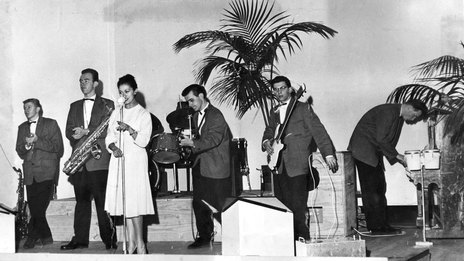
Bob Paris Band, Onehunga 1959. L to R: Bill Fairs, Brian Smith, Desma, Keith McMillan (behind), Bob Paris, Gene Blazer, Dave MacRae
Photo credit:
Brian Smith Collection
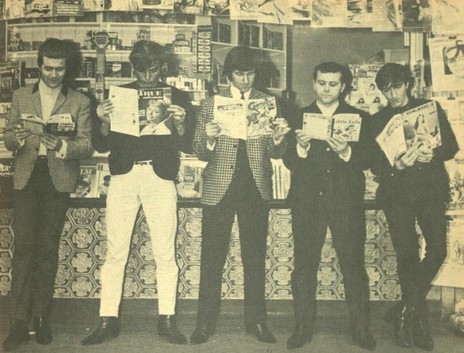
The Merseymen catch up on their reading at the Auckland railway station newsagent, 1964. From left: Dave Moan (Jerry at School), Jim Newton (True Confessions), Jett Rink (Centurs), Bob Paris (Little Lulu), Mike Leyton (Man Annual).
Photo credit:
Jarek Associates, Playdate, October 1964
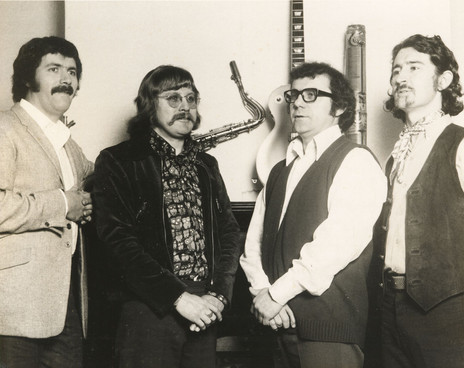
Bob Paris Band promo shot from 1972-73. From left: Dave Moan, Bill Fairs, Bob Paris, Ian McIntyre.
Photo credit:
Bill Fairs collection
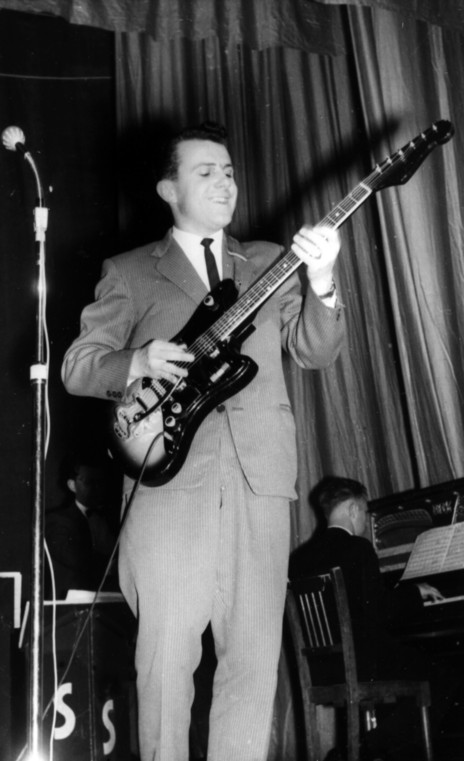
Bob Paris in his element, Showtime Spectacular tour, 1961
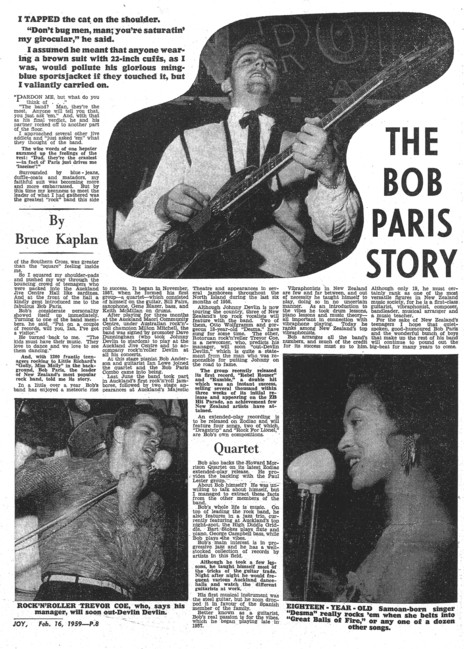
"The Bob Paris Story" as told in hepcat: Joy, 16 February 1959
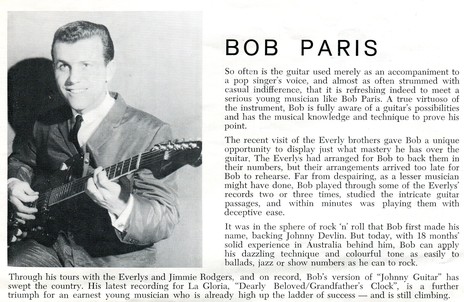
Bob Paris bio in the 1961 Showtime Spectacular tour programme.
Photo credit:
Chris Bourke collection
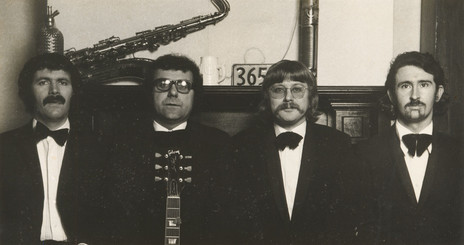
Bob Paris Band promo shot from 1972-73. Taken by Paris' father. From left: Moan, Paris, Bill Fairs and McIntyre.
Photo credit:
Bill Fairs collection
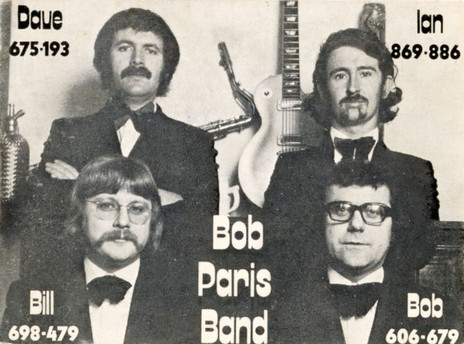
The Bob Paris Band business card, 1972-73.
Photo credit:
Bill Fairs collection
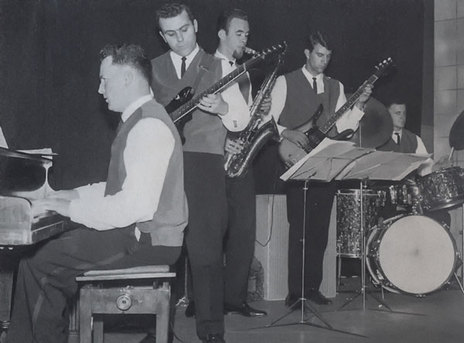
The Bob Paris Band in the late 1950s: Mick Dawson, Bob Paris, Brian Smith, Keith Graham and Tony Hopkins
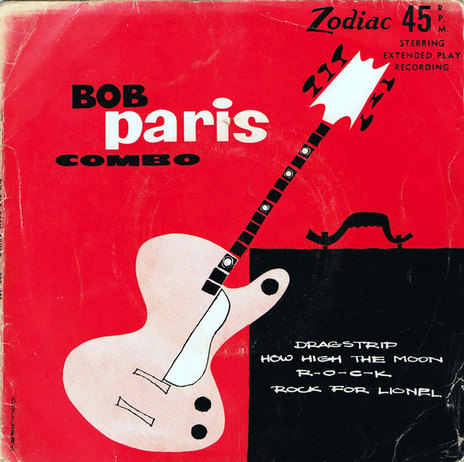
The 1958 Bob Paris Combo EP on Zodiac
Photo credit:
Simon Grigg Collection
Trivia:
Bob Paris worked for 18 months in the late 1950s as an assistant to Phil Warren, helping run his Prestige label.
Bob's nephew was Chris Matthews from Children's Hour and Headless Chickens.